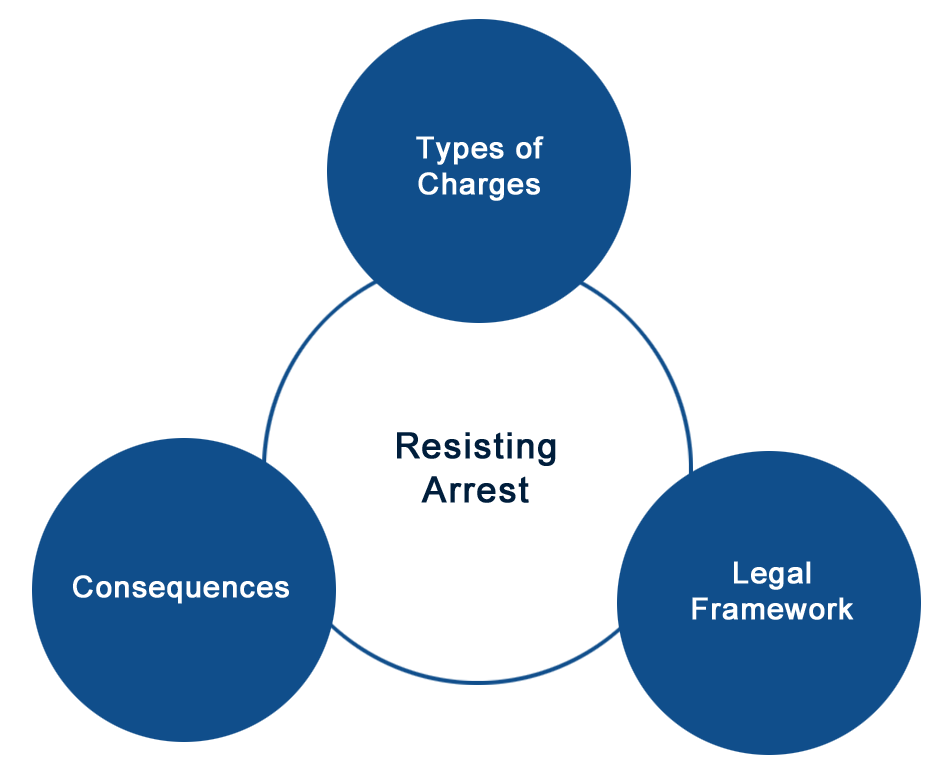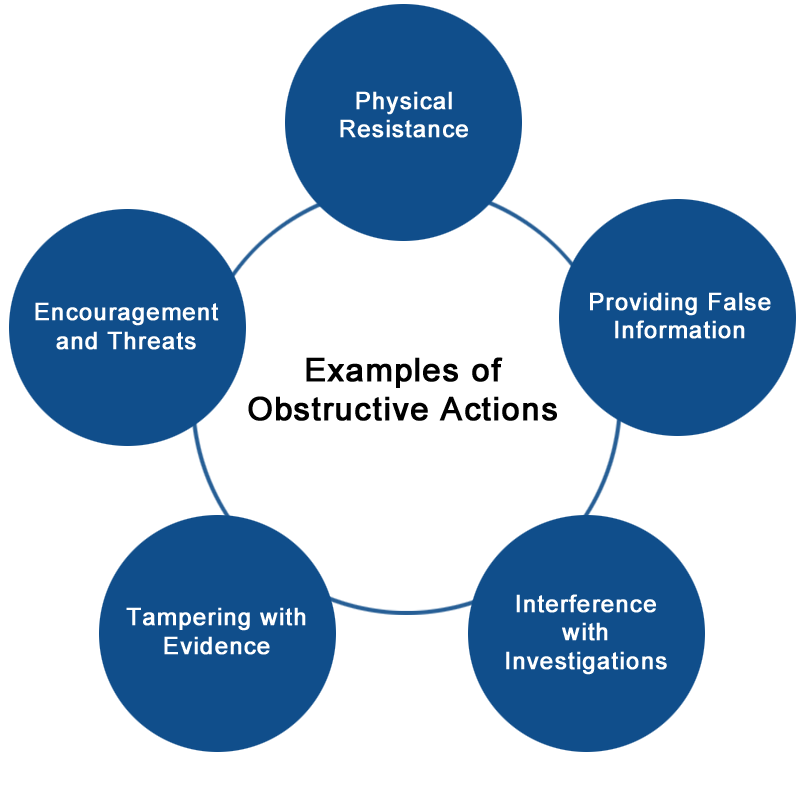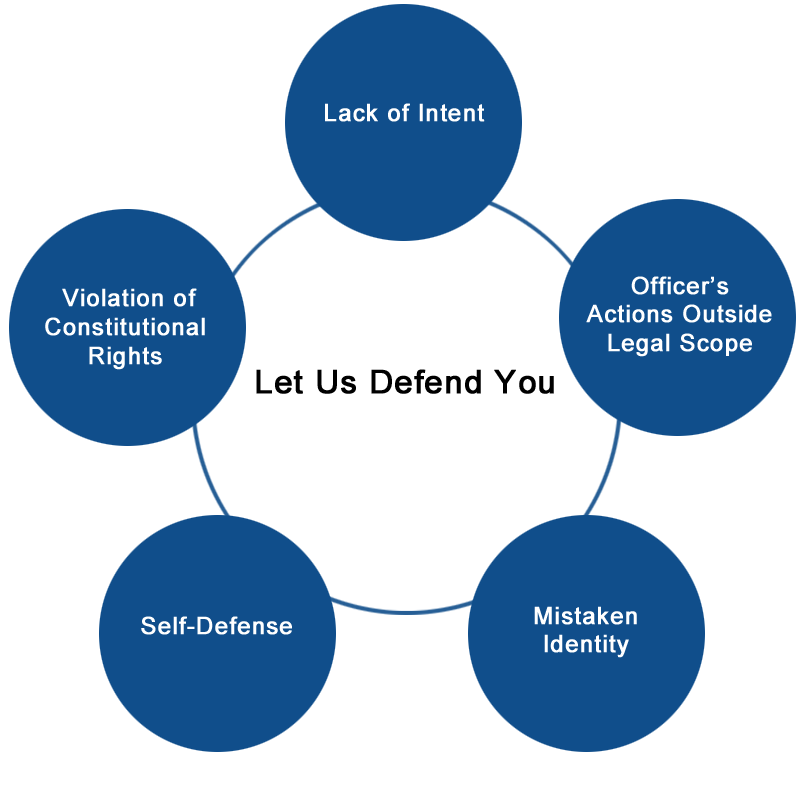
Resisting Arrest in Georgia
Intentionally interfering or hindering a law enforcement officer from performing their duties is considered a crime under Georgia code O.C.G.A. § 16-10-24(a). Charged as Obstructing or Hindering a Law Enforcement Officer, this is considered a misdemeanor in cases where the accused interfered without violence, for example delaying an officer or refusing legal orders. In cases where violence or threats were involved, it can be treated as a felony.
Intentionally interfering or hindering a law enforcement officer from performing their duties is considered a crime under Georgia code O.C.G.A. § 16-10-24(a). Charged as Obstructing or Hindering a Law Enforcement Officer, this is considered a misdemeanor in cases where the accused interfered without violence, for example delaying an officer or refusing legal orders. In cases where violence or threats were involved, it can be treated as a felony.
There are three criteria that must be satisfied for an act to be considered obstructive. First, it must be intentional. The person must be fully aware that their actions are delaying or obstructing the officer. This can be a police officer or federal agent, but could also be a prison guard, corrections officer, parole officer or park ranger. Second, the action must be obstructive in nature, whether that means physically resisting an arrest, lying for the purposes of misleading an investigation, or simply preventing the officer from completing their duties. Finally, the act must serve as an obstruction to a lawful police task such as an arrest, an investigation or an issuance of citation.


There are a variety of actions that could satisfy that second criteria, acting as an obstruction. A few of these include:
- Resisting arrest, physically or otherwise
- Providing false information to a police officer
- Physically preventing a lawful arrest
- Delaying an investigation by failing to comply or refusing to move when ordered
- Fleeing from an officer
- Making threats of physical violence against a police officer
- Physically assaulting a police officer
- Tampering with evidence for the purpose of obscuring the truth
- Encouraging others to obstruct justice or resist arrest
- Failing to provide identification when asked
- Interfering with the execution of a lawful search warrant
- Destroying property that could be used as evidence
In cases where the obstruction occurred without physical violence, this charge is considered a misdemeanor, carrying a fine of up to $1,000 and a year in jail. In addition, those convicted could face probation, mandatory anger management courses, community service, substance abuse counseling, restitution for any financial damages, and ongoing probation. This is in addition to the conviction showing up on a permanent criminal record, making it more difficult to secure housing, employment or education. For non-citizens, this charge can seriously impact their immigration status, potentially leading to deportation.
If the obstruction involved violence, or was directed at protected officers such as park rangers or prison guards, the charge can be elevated to a felony. As a more serious crime, it carries harsher penalties including a 1-5 year prison sentence. Beyond the prison term and the consequences that follow a conviction, having a felony on their permanent criminal record means those convicted could be denied voting rights and First Amendment rights, along with life-long difficulties finding a job, a place to live or opportunities for higher education.
These charges are generally stacked on top of other charges describing the original crime being addressed by the officer. For example, providing false information during a traffic stop for suspected drunk driving could result in both DUI and obstruction charges.
 Defending Against Obstruction Charges
Defending Against Obstruction Charges
Being charged with obstruction does not mean you have been convicted. There are a variety of ways that an attorney can challenge these charges and have them dismissed, reduced or acquitted. A few that have proven successful include proving:
Lack of Intent: An accident cannot be considered obstruction, so this strategy involves showing that the accused did not act intentionally.
Lawful Duties Were Not Obscured: Obstruction needs to keep an officer from executing their legal duties, so this strategy aims to show that the officer was working outside the scope of those duties.
Mistaken Identity: In some cases, it can be shown that the accused was wrongly identified as the person who committed the obstruction.
The Accused Acted in Self-Defense: This involves showing that the accused only acted to prevent the use of excessive force against themselves or others.
That Constitutional Rights Were Violated: Law enforcement officers are legally required to respect a citizen’s constitutional rights, and any violation of those rights can lead to a reduction in charges.
These are just a few of the strategies your attorney can employ in your defense, but there are many more. Showing that the officer failed to clearly communicate lawful orders, that the accused’s actions were misconstrued or didn’t qualify as obstruction or that there is a simple lack of evidence can all lead to reduction, dismissal or acquittal.
How The Claiborne Firm Can Help
At the Claiborne Firm, we have built a solid reputation for success that has helped countless clients see their obstruction charges dismissed, reduced or acquitted. The foundation of this success was built from thorough preparation and dogged determination to overcome the prosecution’s case. From the moment we take up your case, we dig deeper, and work both harder and smarter than the prosecution to ensure you have the best defense possible. We analyze every scrap of evidence from police reports to eyewitness statements, finding the law enforcement errors and mistakes that can weave together a tight-knit defense.
Gathering the wealth of evidence we’ve found, we approach the negotiating table prepared to take on the prosecution’s case and highlight all of its weaknesses. At that point, the prosecution is free to recognize what has been presented and work to reduce or dismiss charges. If they choose to proceed, we’ll meet them in court with a focused and effective strategy that yields results. Your rights deserve the best protection, and the sooner they get that protection the better. Call today to schedule a free, no-obligation evaluation of your case.
Call 1 (866) 521-5577 or Schedule a Free Case Evaluation Online
